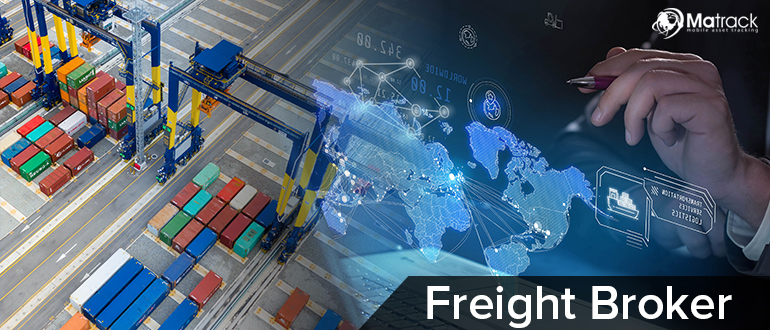Key Takeaways:
- A corporate fleet vehicle is a business-owned or leased car, van, or truck used only for work tasks like deliveries or service.
- Businesses use fleet vehicles to improve efficiency, control costs, support growth, and meet legal and service standards.
- Fleet management involves tracking, maintenance, fuel control, driver performance, and legal compliance.
- Matrack helps manage corporate fleet vehicles through GPS tracking, ELD devices, and dash cams for safety and compliance.
What Does Corporate Fleet Vehicle Mean?
Corporate fleet vehicle means a car, van, or truck that a business owns or leases to help employees do their job. These vehicles are used for tasks like deliveries, service calls or business travel and not for personal use.
The company takes care of things like maintenance, fuel and insurance for these vehicles. It helps the team get work done faster and keeps everything organized under one system.
Key Characteristics of Corporate Fleet Vehicles
Corporate fleet vehicles share specific operational and logistical features:
- Ownership or Leasing by a Business: Vehicles are company-owned or leased under long-term agreements.
- Assigned for Work Purposes: Employees drive them only for business activities.
- Centrally Managed: A fleet manager or a team controls dispatch, maintenance, compliance, and reporting.
- Standardized Branding: Vehicles often display the company logo or uniform color scheme.
- Utilized Across Departments: Sales, service, delivery, and field support teams typically use fleet vehicles.
Fleet vehicles operate under commercial licensing and insurance frameworks and comply with safety regulations that vary by state or country.
Why Businesses Use Corporate Fleet Vehicles
Businesses use corporate fleet vehicles to get things done faster and more smoothly. They help with planning routes better and save time between deliveries or service visits.
These vehicles help save money by allowing the company to buy fuel in bulk and keep up with vehicle maintenance easily. Businesses can also get tax benefits for using them the right way.
Fleet vehicles make the company look professional with logos and clean branding. They also help meet legal rules, especially in industries like healthcare and shipping, while keeping customer service quick and reliable.
Types of Corporate Fleet Vehicles
Different businesses need different types of vehicles based on their work and goals. Here are the most common types found in corporate fleets:
- Passenger Cars: Used by company staff such as sales teams or executives for meetings, travel or day-to-day client visits.
- Light-Duty Trucks and Vans: Ideal for making deliveries or carrying tools and equipment for service-related tasks.
- Heavy-Duty Trucks: Designed for transporting large goods and materials, mostly used in logistics and shipping work.
- Utility Vehicles: Equipped for tough field jobs like maintenance, repair or on-site support in construction or utilities.
- Specialized Vehicles: Built to serve industry-specific tasks such as healthcare transport, food service or emergency response.
The choice depends on the kind of work, the weight of the load, where the vehicle needs to go and what customers expect.
Advantages of Corporate Fleet Vehicles
Corporate fleet vehicles help businesses run more smoothly and get more done with the same resources. They bring multiple benefits that directly support growth and day-to-day operations.
Asset Utilization
Companies make better use of expensive vehicles by keeping them active and productive throughout the workday.
Operational Control
All fleet activity is managed in one place, which makes it easier to track usage, plan routes and schedule tasks.
Scalability
As businesses grow, fleets make it easier to expand delivery zones, service coverage or team mobility without disruption.
Tax Advantages
Fleets bring financial relief through deductions like mileage tracking or Section 179 write-offs for vehicle-related expenses.
Employee Productivity
With assigned vehicles, teams spend less time waiting and more time completing jobs or meeting clients on the go.
Owning a fleet creates lasting savings and makes the business more efficient, especially where transportation plays a big role.
Challenges in Corporate Fleet Management
While corporate fleet vehicles offer many benefits, managing them comes with its own set of challenges. These issues can affect operations, budgets and compliance if not handled properly.
Maintenance Complexity
Coordinating regular servicing, repairs and inspections for a large number of vehicles takes time and careful planning.
Fuel Price Volatility
Fluctuating fuel costs can quickly throw off monthly budgets, especially for fleets that cover long distances.
Driver Turnover
When new drivers join, companies must invest time in training and monitoring to maintain safety and efficiency standards.
Insurance Premiums
Fleet vehicle insurance tends to be more expensive than personal coverage, adding pressure to manage risk and claims.
Regulatory Compliance
Companies must keep up with changing rules around emissions, driving hours and load capacities, which differ from region to region.
Using the right vehicle fleet management software and having trained personnel in place makes it easier to stay ahead of these challenges.
Corporate Fleet Vehicle Management Process
Managing a corporate fleet requires careful planning across several key areas. Each part plays a role in keeping vehicles running efficiently and within legal and cost limits.
Vehicle Acquisition
Businesses get their corporate fleet vehicles through direct purchases, leasing plans or with help from fleet service providers. They make these decisions based on expected mileage, insurance rates and available maintenance support.
Maintenance Scheduling
Fleet managers rely on software tools or telematics to stay on top of regular checkups like oil changes, tire pressure and safety inspections. Timely maintenance lowers the chance of breakdowns and helps avoid high repair bills.
Driver Management
How drivers operate the vehicles affects safety, fuel use and how long the vehicle lasts. That’s why companies invest in training programs and use tools to track habits like speeding or harsh braking.
Fuel Management
To save on fuel costs, companies use fuel cards and software that tracks usage and finds efficient routes. Fleet fuel management software helps prevent unauthorized spending and improves budgeting.
Compliance and Documentation
Fleet managers are responsible for keeping all legal paperwork in order, like insurance, vehicle inspections and emissions testing. Staying compliant avoids legal trouble and keeps the fleet running without delays.
Legal Considerations
Corporate fleet vehicles must follow legal rules that keep both the company and drivers safe. DOT compliance is one of the key requirements, which includes tracking driver hours, checking weight limits and making sure licenses are up to date.
Recordkeeping is just as important, with companies needing to store things like maintenance logs, driver training records and accident reports. Not following these legal steps can lead to serious fines or risks for the business.
Corporate Fleet Vehicle vs. Personal Vehicle for Work
The key differences between corporate fleet and personal vehicles used for work include:
| Attribute | Corporate Fleet Vehicle | Personal Vehicle for Work |
| Ownership | Company-owned or leased | Employee-owned |
| Insurance | Commercial insurance | Personal insurance with riders |
| Maintenance Responsibility | Company | Employee |
| Branding | Yes (usually) | No |
| Tax Deductions | Business expense | Mileage reimbursement |
Fleet vehicles offer higher control and reduced liability to businesses.
Manage Your Corporate Fleet Vehicle With Matrack
Managing a corporate fleet vehicle becomes simple and efficient with Matrack’s GPS tracking system. It lets businesses monitor real-time locations, reduce fuel use, and improve route planning for daily operations.
Matrack’s ELD device helps corporate fleets meet legal requirements by automatically recording driver hours and rest breaks. This keeps your company compliant and reduces the risk of DOT violations.
With fleet dash cam, corporate fleet managers can review on-road behavior and get video evidence in case of accidents. This improves driver safety, lowers insurance claims, and protects the business from liability.



